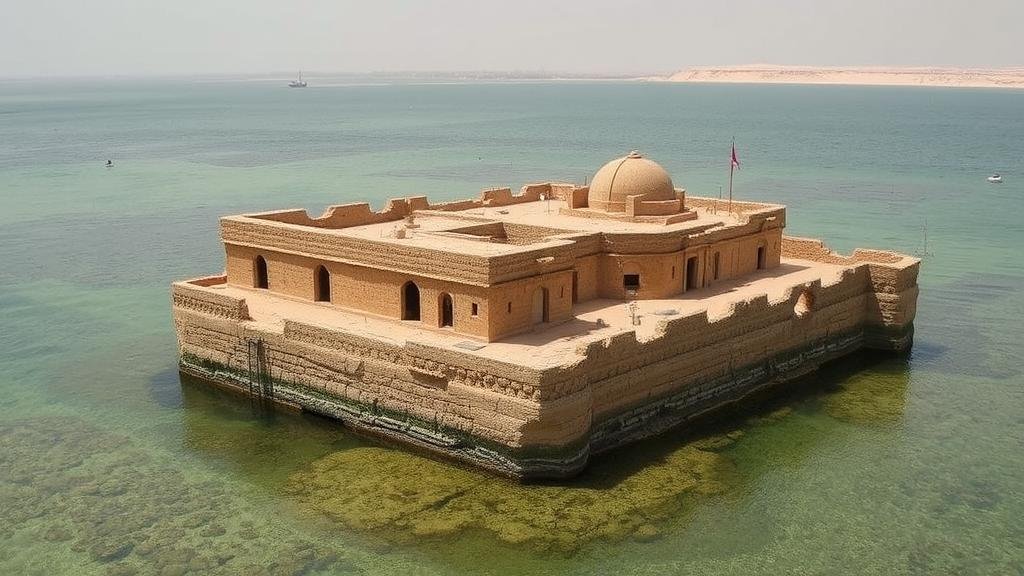Investigating tales of Zakhiku, a submerged city revealed by receding waters in Iraq.
Investigating Tales of Zakhiku: The Submerged City Revealed by Receding Waters in Iraq
Zakhiku, an ancient city submerged under the waters of Iraqs Mosul Dam, has recently captured the attention of historians and archeologists alike. As drought conditions and the subsequent receding of water levels unveil remnants of this once-thriving city, scholars are eager to piece together its story. This article aims to delve into the historical significance, discovery, and implications of Zakhiku’s re-emergence.
The Historical Context of Zakhiku
Zakhiku, thought to date back to the Assyrian Empire around 1000 BCE, is believed to have been a center for trade and culture in ancient Mesopotamia. Located near the banks of the Tigris River in modern-day Iraq, its strategic position contributed to its growth and prosperity. Archaeological findings suggest that Zakhiku had an advanced urban structure that included temples, administrative buildings, and residential areas.
- Assyrian King Shalmaneser III, who reigned from 859 to 824 BCE, is often linked with Zakhikus prominence during its peak.
- Historical records indicate that the city was significantly involved in trade networks that connected it with other major cities of the time, such as Nineveh and Babylon.
The Submersion and Recent Revelations
The construction of the Mosul Dam in the 1980s led to the flooding of the valley, submerging numerous ancient sites, including Zakhiku. For decades, much of its history remained hidden beneath the waters. But, in recent years, changing climatic conditions and prolonged drought have resulted in significant water level reductions. In the spring of 2022, the outline of Zakhiku began to emerge, revealing structures that had been lost to history.
Archaeological Significance
The unveiling of Zakhiku is vital for several reasons:
- It provides an opportunity to study the urban planning and architecture of ancient Assyrian culture.
- It enhances our understanding of subsistence and economic practices during the empires reign.
- It serves as a reminder of the dynamic relationship between humanity and nature, particularly in terms of how natural resources and climate can shape human settlements.
The ongoing archaeological efforts facilitated by the Iraqi government and international organizations are already yielding artifacts such as pottery, tools, and inscriptions that offer insight into daily life in Zakhiku.
Challenges and Considerations
While the resurgence of Zakhiku is a remarkable archaeological opportunity, it is also fraught with challenges:
- Environmental concerns regarding potential damage to the site from continued drought or flooding may hinder preservation efforts.
- The political instability in the region poses risks to archaeological teams and can complicate excavation activities.
- Efforts to safeguard the site might clash with the local populations immediate needs for water resources.
As some towns and villages are situated around the Mosul Dam, the fresh discussions about how to balance resource management and archaeological preservation are critical.
Real-World Applications
The investigations of Zakhiku not only facilitate historical knowledge but also inform current practices in environmental management and archaeology:
- The findings can inform heritage conservation strategies globally, enhancing practices in areas at risk of rising waters or environmental shifts.
- They can also provide lessons on sustainable development, reminding current and future civilizations of the successes and failures of past societies.
Conclusion: The Path Forward
The re-emergence of Zakhiku from the depths of the Mosul Dam is not merely an archaeological phenomenon but a beacon of historical knowledge waiting to be explored. As we navigate pressing issues related to climate change and cultural heritage, Zakhiku serves as a poignant reminder of the resilience of human history. opportunity to study this ancient city offers a multifaceted understanding of our past while presenting a unique platform for future discussions on sustainability and preservation.
For those interested in engaging with this rich tapestry of history, the ongoing work at Zakhiku promises to uncover untold stories and lessons that can shape our understanding of human civilizations journey.



